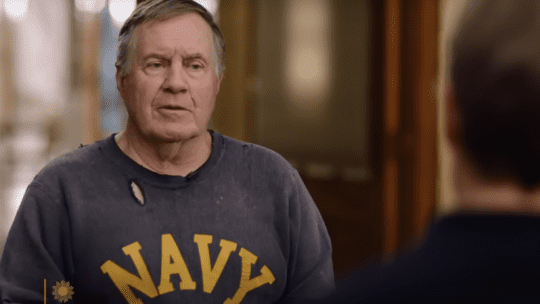
Coach Bill Belichick is offsides—and for a man whose brand was built on the motto “Do your job,” that’s surprising. The former New England Patriots’ head coach seems to have overlooked the fact that public relations people have their own jobs. He’d be well-served by bringing one onto the field right now.
Belichick broadcasted an unanticipated lack of understanding and naivete about how media works during his recent interview on “CBS Sunday Morning.” His expectation that the journalist would stick solely to the contents of his book showed a fundamental misunderstanding of the press. This is a man who’s been interviewed by the press for 50-plus years. When have they ever asked for his guidance on what to ask him?
The situation worsened with his response after the interview didn’t go as planned. First, he blamed his publicist. Then there were claims of “selective editing” and “false narrative” by “CBS Sunday Morning.” Stop me if you’ve heard those tunes before.
Here’s some (unsolicited) advice for the coach, to get him used to playing on the PR field:
Reporters don’t work for you
A subject has no right to dictate how a reporter does his or her job. PR people can, and often do, set the stage for an interview. We set up interviews by outlining the topics our clients are prepared to discuss. But that doesn’t mean PR pros have the right to tell journalists how to do their job. And it certainly doesn’t include bullying them into narrowing their focus to what the subject wants to talk about.
Reporters do work for their audience
Journalists gain credibility with their audiences by doing their jobs—reporting. People read and listen to them because they rely on their distribution of information. That hard-earned trust is not easily earned. It’s why you go on a book tour. A trusted journalist’s review carries weight.
The off-camera voice never plays well
Interviews are about the person on-camera. PR people often attend interviews with their clients for comfort, but professional communicators also know: once the cameras roll, stay quiet. Trying to control the conversation can make reporters cranky. Much has been focused on the source of that off-camera voice in Belichick’s case, and that became the story.
Media training, even for the experienced, makes all interviews better
Even someone who’s been in the media spotlight for 50 years can benefit from media training. Yes, they’ve done a million interviews, but that was as an NFL coach. Belichick’s curmudgeon brand served him well then, and it became what fans knew him as. In a new position, the rules and audience change.
Interviews that don’t go the way you planned are a way of life
A good story—say about a legendary winning NFL coach writing about lessons from his 50 years in the NFL—is something lots of folks want to cover. If some of those interviews go south, welcome to the PR world. On the whole, a good story is a good story. Ride the good interviews, and walk away from those that didn’t work out. Following up by trashing the media does nothing for the subject. I suspect the coach gave his players similar advice after a loss.
The bottom line: In this new life, Belichick no longer has the media control he’s used to, but the outcome—winning—is still possible. (In fact, he just signed up for his first interview since the viral CBS segment.) Let reporters do their jobs, and you just may come out on top—again.
Andrea Obston is President of Andrea Obston Marketing Communication and an adjunct professor at Quinnipiac University. She is also an unapologetic and loyal Patriots fan.
